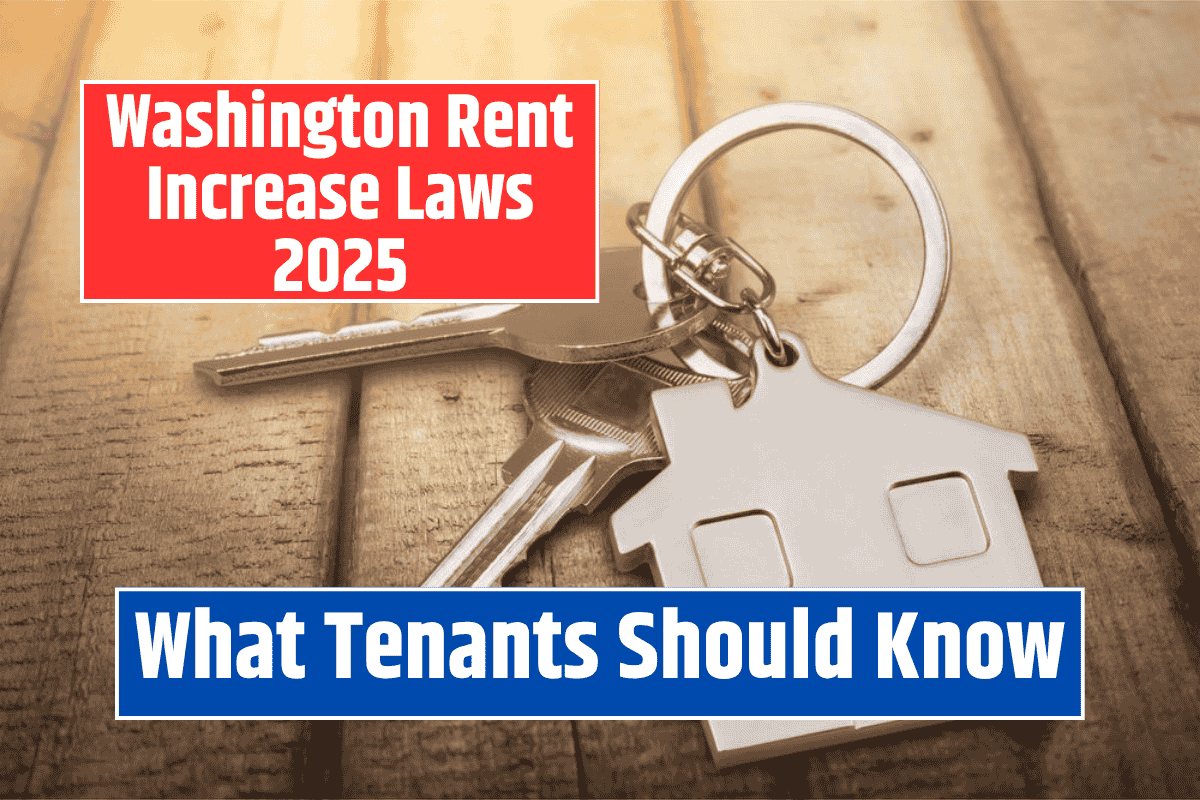In 2025, Washington State has introduced several new housing laws that affect both renters and property owners. These laws aim to make housing more affordable, protect tenant rights, and boost the supply of homes across the state. Whether you’re renting a flat or managing a property, it’s important to understand these changes.
Let’s go through the main rent increase laws and housing policies introduced in 2025, and what they mean for tenants and landlords in Washington.
House Bill 1217: Washington’s First Statewide Rent Control
For the first time, Washington has introduced statewide rent control through House Bill 1217. This new law limits how much landlords can increase rent each year.
Here’s how it works:
Rent can only be increased by 7% + inflation, or up to 10% max, whichever is lower.
For tenants, this means more stable housing costs and protection from sudden, large rent hikes. For landlords, this puts a cap on how much income can grow annually, even when costs like maintenance or property taxes increase.
Landlords should now plan their finances carefully and may need to find ways to control expenses to stay profitable under the new limit.
House Bill 1491: More Housing Near Transit Stations
Another major change came with House Bill 1491, which promotes higher-density housing near public transit. This law requires cities to allow more apartments and multi-family buildings close to metro stations, light-rail stops, and bus lines.
This is good news for renters, as it could lead to more homes near workplaces, schools, and city centers. For property owners, it may create new opportunities to build more units on land they already own—especially in areas near transit routes.
However, landlords or builders must follow new planning and zoning codes, so understanding the latest requirements is key.
House Bill 1096: Easier Lot Splitting for Small Homes
House Bill 1096 is aimed at increasing the supply of affordable housing in neighborhoods that were traditionally single-family only. It allows lot splitting, which makes it easier to divide big plots of land into smaller ones to build duplexes, triplexes, or accessory dwelling units (ADUs).
This benefits renters looking for budget-friendly, flexible housing, and owners who want to earn rental income from extra units on their property.
Still, it’s not automatic—landlords will need to go through the local permit process, check zoning rules, and maybe invest in infrastructure like driveways and utilities.
House Bill 1177: Rental Help for At-Risk Families
House Bill 1177 provides extra housing support for families in the child welfare system. Families at risk of losing custody of their children because of housing issues can now access more rental aid and case management.
This law is designed to keep families together and safe. For landlords, it means some tenants may now use state-backed rental support programs, which often provide steady payments through vouchers.
However, to accept such tenants, landlords must meet program standards, including clean and safe living conditions, proper lease terms, and fair housing practices.
Washington’s 2025 housing laws mark a big change in how the state approaches rent control, housing access, and urban development. For tenants, these laws bring more security and choice. For landlords, the new rules require planning, awareness, and in some cases, investment to stay compliant and profitable.
Whether you’re a renter or property owner, staying informed about the latest housing laws is the best way to avoid disputes and adapt to the changing market. The key is to stay flexible and work within the law to build strong, stable rental relationships.












